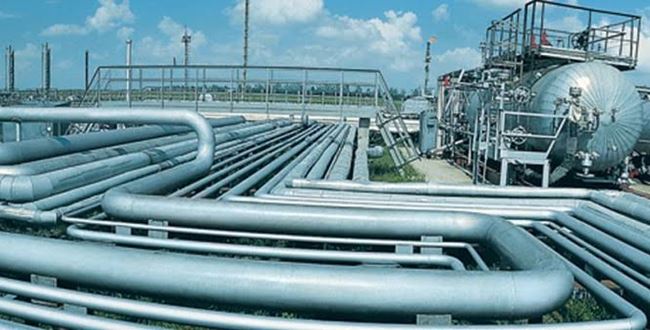Business
Nigeria to grow gas production to 1,780 bcf, targets Europe

Nigeria’s gas production level is set to hit 1,780 billion cubic feet (bcf) in 2022, up from 1,450 billion feet in 2021, a new report from African Energy Chamber (AEC) has shown.
The report noted that increased production will help Nigeria become a major player in gas supply to European countries.
Nigeria has over 200 trillion cubic feet of natural gas reserves, the biggest in Africa.
The report in its outlook noted that the existing production projects and the projects currently under development in Nigeria are expected to ensure a resilient supply through 2025.
“With this portfolio, Nigeria has an advantage for Europe to look up to the West African country as a potential supplier,” the report stated.
In addition, the report also indicated that the multi-billion 4,128km Trans-Saharan Natural Gas Pipeline being built by the governments of Nigeria, Niger and Algeria will enable the integration of Trans-Mediterranean, Maghreb-Europe, Medgaz, and Galsi Pipelines for Europe to leverage west and north Africa’s oil and gas resources to meet demand.
The AEC outlook also indicated that once completed, the pipeline will transport 30 billion cubic metres of natural gas per year, and Nigeria, as a leading producer in Africa, can produce a significant share of that capacity.
Nigeria’s current natural gas producing fields are expected to see a steep decline as we approach the mid-2020s, a worrying situation that can reduce the country’s production capacity, according to the report.
Read also: DPR begins review of gas production sharing contracts
Hendrick Malan, the CEO of energy market research firm, Frost & Sullivan, in an exclusive interview with the AEC has said, “Nigeria is rich in oil and gas resources but still does not have adequate infrastructure such as a functioning refinery.
Malan added, “In order to utilize its oil and gas resources effectively, Nigeria needs to build more infrastructures locally to process its energy.
“To be able to build the infrastructure needed, there is a need for direct involvement from a combination of the private and public sector partners,” he said.
Join the conversation
Support Ripples Nigeria, hold up solutions journalism
Balanced, fearless journalism driven by data comes at huge financial costs.
As a media platform, we hold leadership accountable and will not trade the right to press freedom and free speech for a piece of cake.
If you like what we do, and are ready to uphold solutions journalism, kindly donate to the Ripples Nigeria cause.
Your support would help to ensure that citizens and institutions continue to have free access to credible and reliable information for societal development.
























